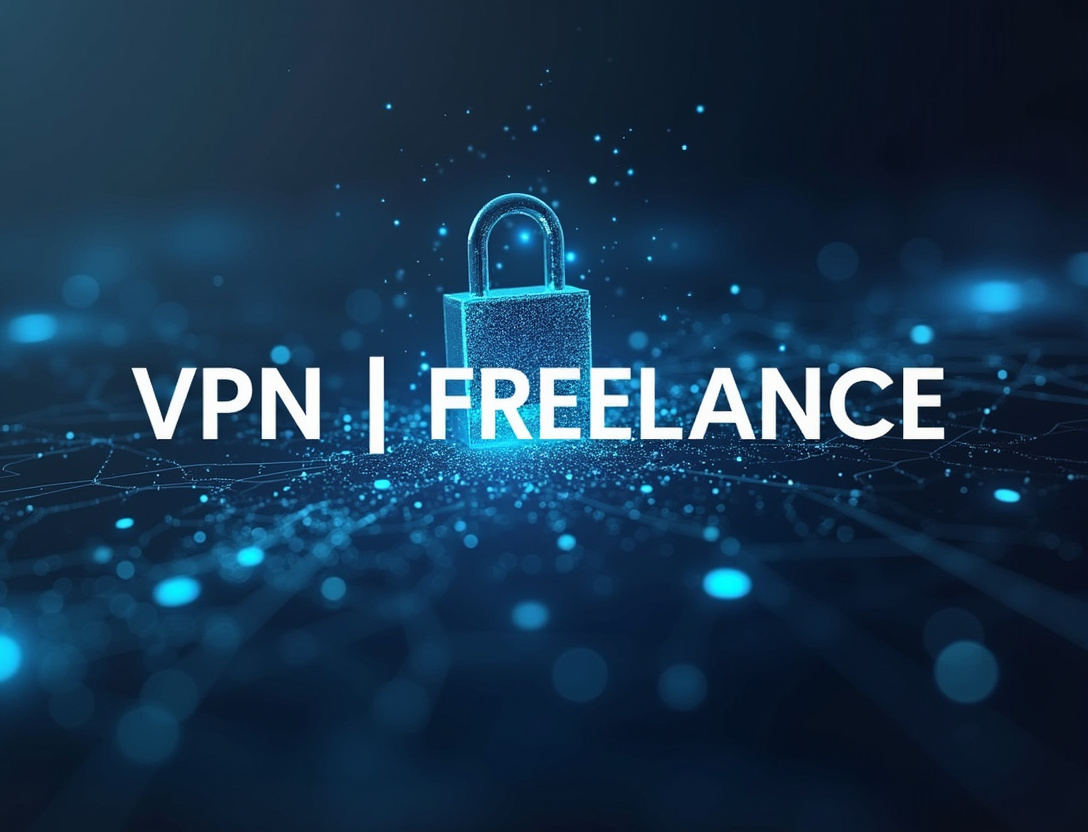Understanding VPN Kill Switch: Essential for Security

Table of Contents
Defining the VPN Kill Switch: A Safety Net for Your Connection
In an age defined by relentless digital connectivity, securing our online presence has become paramount. Virtual Private Networks (VPNs) have emerged as essential tools in this quest, promising encrypted internet traffic, masked IP addresses, and a shield against prying eyes. However, even the most reliable VPNs are susceptible to occasional hiccups – dropped connections, server issues, or unforeseen software glitches.
These momentary lapses can expose your true IP address and sensitive data, rendering you vulnerable to surveillance, data breaches, and targeted cyberattacks. This is where the VPN kill switch steps in as a critical guardian, acting as a fail-safe mechanism designed to prevent data leaks and ensure continuous protection, even when the VPN connection falters. This article delves deep into the world of VPN kill switches, exploring their functionality, importance, and the criteria for choosing a VPN service that offers robust protection through this vital feature.
The VPN kill switch is essentially a safety net, a last line of defense within your VPN setup. It is a specialized VPN feature that automatically severs your internet connection the instant the VPN connection drops. This immediate and decisive action prevents your device from reverting to its default, unprotected connection, thereby safeguarding your actual IP address and any sensitive data being transmitted from exposure to the internet.
The potential consequences of a brief VPN disconnection without a kill switch can be severe. Imagine downloading torrents, accessing online banking, or working with confidential documents. Even a momentary dip in VPN protection could inadvertently expose your location, browsing history, and other sensitive information to your Internet Service Provider (ISP), government surveillance, or even malicious actors monitoring your network traffic.
The VPN kill switch proactively mitigates this risk, providing an assurance that your privacy remains intact and your data secure, regardless of the stability of your VPN connection. A VPN equipped with kill switch functionality is not merely a convenience; it represents a commitment to robust security and unwavering data protection. The core function of a VPN kill switch lies in its ability to provide robust security, especially under unexpected circumstances.
It constantly monitors the connection status between your device and the VPN server. Think of it as a vigilant sentinel, always on the lookout for any disruption in the encrypted tunnel that protects your data. If the connection is interrupted for any reason – a server outage, a network glitch, or even a manual disconnection – the kill switch immediately springs into action.
It effectively slams the door shut on all internet traffic, preventing any data from flowing through your device's regular, unprotected internet connection. Once the VPN connection is successfully re-established, the kill switch seamlessly restores internet access, allowing you to resume browsing and accessing online services under the secure umbrella of the VPN. Different VPN services offer kill switches with varying degrees of sophistication and customization.
Some offer a basic kill switch that simply blocks all internet traffic in the event of a disconnection, while others provide more advanced options that allow you to specify which applications should be blocked, offering greater granular control over the kill switch behavior. For instance, you can configure the kill switch to only block traffic from specific apps handling sensitive data, while allowing other apps to continue accessing the internet via your regular connection. This level of customization provides flexibility without compromising the data protection of your most critical activities.
The presence of a well-implemented VPN kill switch is a strong indicator of a VPN provider's commitment to user security and its willingness to go the extra mile to protect your privacy. It demonstrates a proactive approach to addressing the inherent limitations of VPN technology, offering an additional layer of security that enhances your overall online protection. When selecting a VPN, it is crucial to carefully assess whether a kill switch is included and how it is implemented.
Look for kill switches that are user-friendly, offer customization options, and have a demonstrated history of reliability. A well-designed kill switch is an integral part of a comprehensive data protection strategy. In conclusion, understanding the functionality and importance of a VPN kill switch is essential for anyone seeking to enhance their online security and privacy.
It is a critical VPN feature that provides a safety net against unexpected disconnections, preventing data leaks and ensuring continuous protection. By choosing a VPN service with a robust and customizable kill switch, you can browse the internet with greater confidence, knowing that your sensitive data is protected, even when the unexpected occurs.
How a Kill Switch Works: Preventing Data Exposure During VPN Downtime
The true measure of a VPN kill switch lies not just in its presence, but in its effectiveness and reliability. A superficial or poorly designed kill switch may fail to function correctly in critical moments, leaving users vulnerable despite their belief that they are adequately protected. Therefore, understanding the technical underpinnings and design considerations of a kill switch is crucial for discerning a robust solution from a mere checkbox feature.
Ideally, a well-engineered kill switch should operate at the operating system level, rather than relying solely on the VPN application's processes. This ensures that even if the VPN application crashes due to a bug, conflict, or external interference, the kill switch remains active, continuing to block any unauthorized internet traffic. Some basic kill switches are intrinsically linked to the VPN application's monitoring of the connection status.
This reliance makes them vulnerable to situations where the VPN application itself malfunctions, becomes unresponsive, or fails to recognize the disconnection promptly due to unforeseen errors. An operating system-level kill switch, conversely, bypasses this dependency by directly monitoring the underlying network adapter, ensuring it is always aware of the VPN connection status, regardless of the VPN application's internal state. This direct monitoring provides a more robust and reliable response in the event of a VPN disconnection, providing a greater level of data protection.
Another critical facet of a trustworthy and reliable VPN kill switch is its ability to effectively prevent DNS (Domain Name System) leaks. When your device attempts to resolve a domain name, for example, transforming "example.com" into its corresponding IP address, it sends a DNS request to a DNS server. Typically, this DNS server is operated by your ISP, meaning that your ISP can potentially monitor and log the websites you are visiting.
Without rigorous precautions, these DNS requests can bypass the VPN tunnel, leaking your browsing activity and real location, even while using a VPN. A robust VPN kill switch will reroute all DNS requests through the secure VPN tunnel, ensuring that your DNS queries are also shielded from prying eyes. The most secure VPN services often operate their own private DNS servers within their infrastructure.
These private DNS servers add an extra layer of protection by ensuring that your DNS queries are not logged or intercepted by third parties. When evaluating VPN services, it's paramount to determine how they handle DNS requests and whether their kill switch is equipped with DNS leak protection. DNS leak protection is particularly crucial for individuals residing in countries with strict internet censorship or extensive surveillance programs, where DNS filtering is often employed to block access to specific websites or monitor online activities.
Beyond core functionality and security considerations, a good and configurable VPN kill switch should also offer a range of customization options that enable you to tailor its behavior to suit your individual needs and usage patterns. For example, you should have the option to specify the application that should have a VPN present in order to access to the network. If the application that you defined does not have a VPN it will prevent it to have internet access.
Allowing a VPN to prevent access to an application that you define is crucial for data protection best practices. This approach facilitates you to get data protection even when the VPN has unexpected disconnections. In summary, data protection is of utmost importance, and the VPN kill switch plays an indispensable role in ensuring it.
When choosing a VPN provider, prioritize those that offer a comprehensive explanation of how their kill switch works, the types of disconnections it safeguards against, and the degree of customization it affords. Seek out independent analyses and performance tests of their kill switch to affirm its reliability and effectiveness under varying circumstances. A reputable and trustworthy VPN provider will be transparent about its security measures, willingly furnishing you with detailed information about its kill switch implementation and functionality.
Always bear in mind that a kill switch serves as a critical safety net that protects your privacy and data in the event of unexpected VPN disconnections. Selecting a reliable VPN service that incorporates a robust and well-designed kill switch is an essential step in strengthening your overall online security posture and maintaining control over your digital privacy in an increasingly interconnected and surveilled world.
Why You Need a Kill Switch: Protecting Privacy in a World of Cyber Threats
The proactive nature of a well-designed VPN kill switch extends beyond simply blocking internet traffic upon disconnection; it anticipates potential vulnerabilities and offers safeguards against various scenarios. One crucial consideration is the behavior of the kill switch during system restarts or unexpected shutdowns. In such situations, it's vital that the kill switch remains active from the moment the operating system boots up, preventing any data from leaking before the VPN connection is re-established.
Some rudimentary kill switches only activate once the VPN application is fully loaded and connected, leaving a window of vulnerability during the initial startup phase. A more sophisticated kill switch integrates with the operating system's boot process, ensuring that internet access is blocked by default until the VPN connection is securely established. This preemptive approach significantly reduces the risk of accidental data exposure during system reboots or unexpected crashes.
Furthermore, a robust kill switch should be resilient to deliberate attempts to bypass its protection. Malicious software or sophisticated users might try to disable the kill switch or reroute traffic through alternative interfaces to circumvent the VPN protection. A well-designed kill switch incorporates security measures to prevent such tampering, ensuring that it remains active and effective even under attack.
This might involve restricting access to network settings, monitoring system processes for suspicious activity, or using cryptographic techniques to verify the integrity of the kill switch components. Another essential aspect of a reliable VPN kill switch is its handling of different types of network interfaces. Modern devices often have multiple network connections available, such as Wi-Fi, Ethernet, and cellular data.
A comprehensive kill switch should be able to block traffic across all available interfaces, preventing data from leaking through an alternative connection if the primary VPN-protected interface fails. Some kill switches only focus on blocking traffic through the primary network interface, leaving other interfaces vulnerable. A robust kill switch allows you to specify which interfaces should be protected, or automatically blocks traffic across all interfaces by default.
This ensures that your data remains secure, regardless of the type of network connection you are using. In addition to blocking internet traffic, an advanced VPN kill switch might also offer features such as application-specific protection. This allows you to specify which applications should be automatically closed or prevented from accessing the internet if the VPN connection drops.
This feature is particularly useful for applications that handle sensitive data, such as email clients, financial software, or torrenting applications. By automatically closing these applications upon disconnection, you can further reduce the risk of data exposure. The effectiveness of a VPN kill switch also depends on its ease of use and configuration.
A complex or poorly documented kill switch can be difficult to set up and maintain, potentially leading to errors or misconfigurations that compromise its effectiveness. A well-designed kill switch should be intuitive and easy to configure, with clear instructions and helpful tooltips. It should also provide detailed logs and notifications, allowing you to monitor its activity and verify that it is functioning correctly.
Some VPN services offer a "test kill switch" feature, which allows you to simulate a VPN disconnection and verify that the kill switch is working as expected. This can be a valuable tool for ensuring that your kill switch is properly configured and ready to protect your data in the event of a real disconnection. When selecting a VPN service, it is essential to consider the user experience of the kill switch and ensure that it is easy to use and understand.
A complex or confusing kill switch is more likely to be disabled or misconfigured, reducing its effectiveness. By choosing a VPN service with a user-friendly and well-documented kill switch, you can ensure that your data remains protected, even if you are not a technical expert. A robust VPN kill switch is not simply a feature; it is a commitment to providing comprehensive and reliable data protection.
By carefully considering the design, functionality, and ease of use of a kill switch, you can choose a VPN service that offers the best possible protection for your sensitive data.
Configuring and Managing Your Kill Switch: Ensuring Continuous Protection
The importance of a VPN kill switch extends beyond personal use cases; it is equally crucial for businesses and organizations that handle sensitive data or require a high level of online security. In a corporate setting, data breaches can have severe consequences, including financial losses, reputational damage, and legal liabilities. A VPN kill switch can help protect against these risks by ensuring that sensitive data is never exposed to the internet in the event of a VPN disconnection.
For example, businesses that use VPNs to provide remote access to their internal network can benefit from a kill switch that prevents employees from accidentally accessing sensitive data over an unprotected connection. This is particularly important for organizations that operate in regulated industries, such as healthcare or finance, where data protection is mandated by law. A VPN kill switch can help these organizations comply with regulatory requirements and avoid costly penalties.
Moreover, a VPN kill switch can be a valuable tool for protecting against insider threats. Even well-intentioned employees can make mistakes that compromise data security, such as accidentally disconnecting from the VPN or using an insecure network connection. A kill switch can mitigate these risks by automatically blocking access to sensitive data if the VPN connection is interrupted.
This can help prevent accidental data leaks and protect against malicious activity. Furthermore, the use of a VPN kill switch can enhance an organization's overall security posture by providing an additional layer of defense against cyberattacks. In today's threat landscape, cybercriminals are constantly developing new and sophisticated techniques to gain access to sensitive data.
A VPN kill switch can help protect against these threats by ensuring that data remains encrypted and inaccessible, even if an attacker manages to compromise the VPN connection. This is particularly important for organizations that are targeted by advanced persistent threats (APTs), which are sophisticated cyberattacks that can persist for months or even years. A VPN kill switch can help detect and respond to these attacks by automatically blocking access to sensitive data if the VPN connection is compromised.
Integrating a VPN kill switch into an organization's security infrastructure requires careful planning and configuration. It is essential to choose a VPN solution that offers a robust and customizable kill switch, as well as comprehensive logging and monitoring capabilities. The kill switch should be configured to block access to all sensitive data by default, and employees should be trained on how to use it properly.
Regular audits should be conducted to ensure that the kill switch is functioning correctly and that employees are adhering to security policies. In addition to technical measures, organizations should also implement policies and procedures to address the human element of data security. This includes providing regular security awareness training to employees, enforcing strong password policies, and implementing multi-factor authentication.
By combining technical controls with human factors, organizations can create a layered security approach that provides the best possible protection against data breaches. VPN kill switches are not a silver bullet for data security, but they can be a valuable tool for organizations that are serious about protecting their sensitive data. By choosing a VPN solution with a robust and customizable kill switch, and implementing appropriate policies and procedures, organizations can significantly reduce their risk of data breaches and enhance their overall security posture.
Robust security measures are not a luxury but a necessity in today's interconnected world. The cost of a data breach can far outweigh the investment in a VPN kill switch, making it a sensible and cost-effective security precaution. By prioritizing data security and investing in appropriate technologies, organizations can protect their valuable assets and maintain the trust of their customers and stakeholders.
In conclusion, the VPN kill switch is an indispensable component of a comprehensive online security strategy, particularly in an era where data privacy is constantly challenged. It provides a critical safety net, guarding against unexpected VPN disconnections and potential data leaks. Whether you are an individual user concerned about personal privacy or a business seeking to protect sensitive corporate data, understanding the functionality, benefits, and implementation of a VPN kill switch is paramount.
Choosing a VPN service that offers a robust and customizable kill switch is a key step in ensuring continuous data protection. Look beyond the marketing hype and delve into the technical specifications of the kill switch, considering its operating system-level integration, DNS leak prevention capabilities, and ability to handle multiple network interfaces. Prioritize ease of use and configuration, ensuring that the kill switch can be effectively managed without requiring extensive technical expertise.
Preventing data leaks is a core principle of online security, and the VPN kill switch plays a direct role in achieving this goal. By automatically blocking internet traffic upon VPN disconnection, the kill switch prevents sensitive data from being exposed to the internet through an unprotected connection. This is particularly important when accessing sensitive information, such as banking details, medical records, or confidential business documents.
A VPN kill switch can also protect against unintentional data leaks caused by software vulnerabilities or misconfigurations. By providing a consistent and reliable layer of protection, the kill switch reduces the risk of accidental data exposure. In essence, the decision to utilize a VPN kill switch is a proactive step towards asserting control over one's digital footprint and mitigating the risks associated with online activity.
The awareness of its functionality empowers users to make informed choices about their VPN usage and configure their settings to maximize data protection. Beyond the technical considerations, it is equally important to foster a security-conscious mindset. Encourage regular security audits, promote strong password policies, and implement multi-factor authentication.
By combining technical safeguards with human vigilance, you can create a robust and layered security approach that provides the best possible protection against data breaches and cyber threats. As VPN technology evolves, the VPN feature of the kill switch will likely become even more sophisticated. Future iterations may incorporate machine learning algorithms to detect and respond to threats in real-time, or integrate with other security tools to provide a more unified and comprehensive defense.
Staying informed about the latest developments in VPN technology and adopting best practices is essential for maintaining a secure online presence. The digital landscape is constantly changing, and it is crucial to adapt your security measures accordingly. The effectiveness of VPNs and their security features, including the kill switch, also depends on the legal and regulatory environment.
Some countries have strict internet censorship laws or data retention policies that can undermine the effectiveness of VPNs. It is important to be aware of the laws in your jurisdiction and to choose a VPN service that respects your privacy rights. In conclusion, embracing a VPN kill switch signifies a commitment to robust security, proactive data protection, and responsible online behavior.
It is an essential tool for anyone who values their privacy and security in the digital age. By understanding its functionality, considering its implementation, and integrating it into a broader security strategy, you can navigate the online world with greater confidence and peace of mind. The digital realm demands constant vigilance, and the VPN kill switch stands as a steadfast guardian, ensuring that your data remains protected, even when the unexpected occurs.
The combination of a well-chosen VPN service, a carefully configured kill switch, and a security-conscious mindset empowers you to take control of your online experience and navigate the digital world with confidence and peace of mind.
Stay Updated
Get the latest VPN news, tips, and exclusive deals to your inbox.




